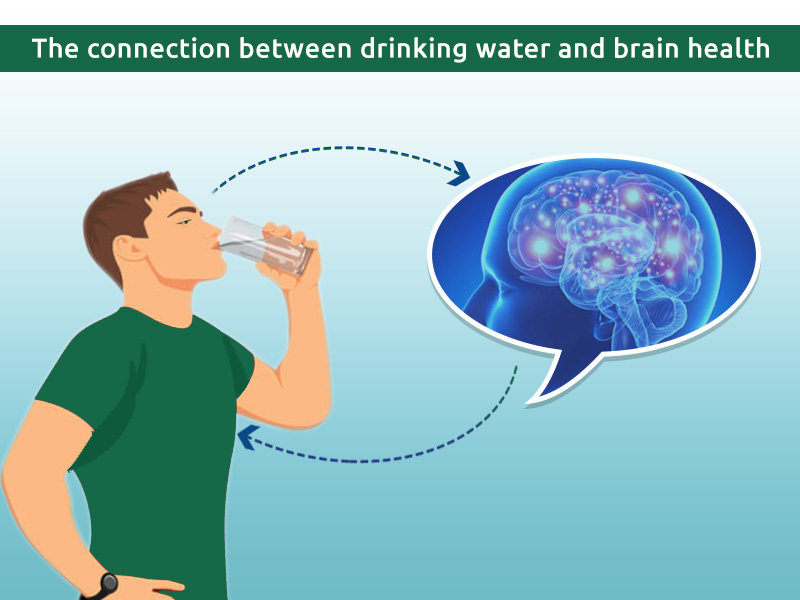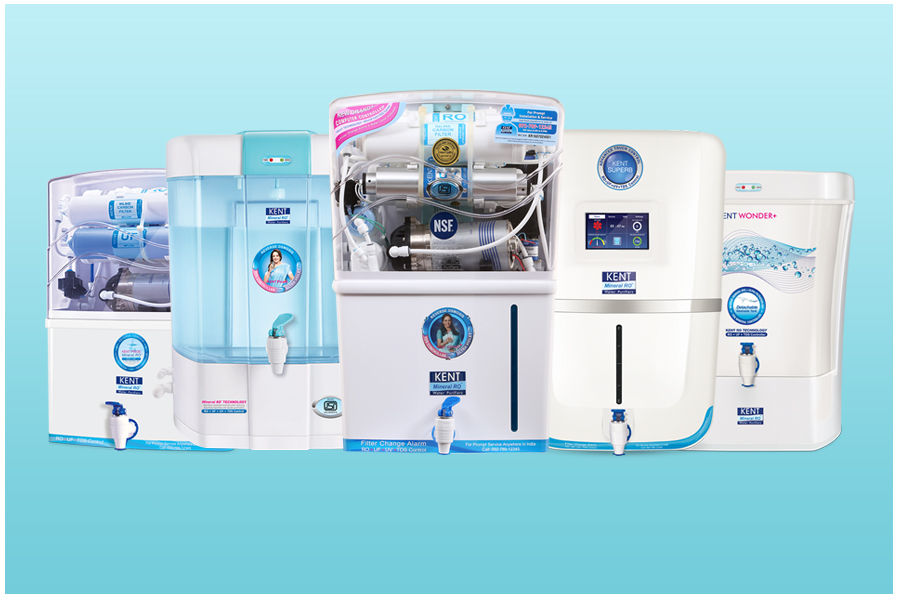The Relation Between Dehydration and your Brain’s Functioning

Do you find it difficult to focus on your work or have a poor memory? If the answer to the question is positive, you are probably dehydrated. Water, which makes up 70-80% of our body, is something that we tend to neglect leading to a lot of health problems. A lot of people suffer from chronic dehydration which not only affects health but also their brain functioning. With some of the best water purifiers available online, drinking clean and fresh water is no longer a problem. However, before choosing a water purifier, ensure that you check the price, brand, and features in India to get value for money. In this blog, we discuss the relationship between brain functioning and staying hydrated and the effects of dehydration on the brain.
How Dehydration Affects Your Brain?

When you are dehydrated, the sensory receptors in the hypothalamus, which is the thirst center, signal the release of anti-diuretic hormone. This particular hormone reaches the kidney and triggers aquaporin- a special channel that allows blood to retain water. When you are dehydrated, your brain tissues shrink, and need to work extra hard to accomplish a task. Shrinkage of brain tissues has an impact on the vernacular volume of your brain where the cerebral spinal fluid is also present. The cerebral spinal fluid is necessary for the brain to get essential nutrients and flush away waste. If you are extremely dehydrated, your brain activates a coping mechanism that maintains the brain function even when you are extremely dehydrated.
5 dehydration effects on the brain
1. Affects your Mood
Many studies have suggested that there is a relation between dehydration and mood swings. In 2012, a group of researchers from the University of Connecticut found that dehydration in healthy young women showed a measurable increase in mood swings.
2. Reduces Cognitive Skills
Dehydration also affects the cognitive skills of a person. Researchers found that even a 2 percent loss of fluid led to impairment in tasks that require attention, and motor coordination such as map recognition, proofreading, grammatical reasoning, and mental math.
3. Affects your Memory
Dehydration has also been found to have a negative effect on your memory. The reason is dehydration affects the sodium and electrolyte levels in your body, which has an impact on your memory. Dehydration reduces your concentration, especially when you are completing tasks involving attention, executive function, and motor coordination.
4. Headaches
A common effect of dehydration on the brain is a headache. Acknowledged by the American Headache Society to be a possible trigger of any kind of headache, a dehydration headache can be felt in any region of the head. The intensity of the pain can also vary from intense migraines to a dull tension pulling from your forehead.
5. Sleep Issues
Dehydration leads to fatigue, which means you may have trouble getting out of bed in the morning. This will impact your quality of life because it will make it difficult for you to function throughout the day. It’s also important to note that dehydration can make you feel weak, dizzy, or lightheaded when standing up quickly, which may lead to falls that result in serious injuries or even death.
The most important nutrient that your brain can receive is water. The major portion of your brain is made up of water which is the reason dehydration has a negative effect on your brain. The different systems of your brain communicate with your brain through the nervous system, which gives electrical signals to your body using the nerve pathways. When you are dehydrated, the nervous system can’t communicate with your body and gives rise to a number of symptoms.
How does Proper Hydration Improve your Brain’s functioning?
Improves your Cognition
When you are hydrated, it improves your cognition. When you are hydrated and healthy, your body allows your brain to function optimally. Staying hydrated also helps your nervous system to easily communicate with your body. Increasing your water intake helps in reducing confusion, increases alertness, and improves your memory, focus, and attention.
Keeps you in Good Mood
Staying hydrated also helps you overcome anxiety, lack of energy, and depression. Mild dehydration can have a negative impact on your mood and emotional well-being. Drinking water keeps you calm, positive, and contented, and maintains your energy levels.
How do you check if you are Dehydrated?
Your body struggles to maintain normal temperature, remove waste and keep the organs protected triggering a number of symptoms. Some of the most common symptoms of dehydration are thirst, dry mouth, dry eyes, dry skin, headaches, drop in blood sugar, irritability, and dizziness. Ensure that you drink water even if you are not thirsty. Thirst symbolizes that your body is already dehydrated to a great extent. However, ensure that the water you drink is pure and free of contaminants. Carry a water bottle whenever you go out instead of opting for bottled water which is not safe for consumption.
Installing an RO water purifier ensures that you drink safe and clean water.
Last Few Words
Staying hydrated is not only important for your skin and health but also plays an important role in brain functioning. With the availability of different types of RO water purifiers, you can easily select a product that meets your budget and specific needs. If you are looking for top-quality water purifiers, check out the range of water purifiers from KENT to choose the best-suited product.
Related Posts

Water-borne Diseases- What Every Concerned Dog Owner Needs to Know

KENT Water Purifiers Can Help You Live a Better Healthy Life


